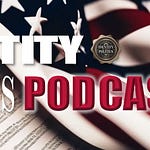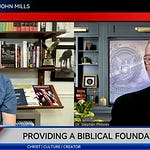Identity Politics Podcast: The top five questions!
Dr. Stephen Phinney is a seasoned writer and speaker on issues related to the intricacies of spiritual identity and politics, exploring how displaced ideologies and culture shape our society and influence policy decisions.
FIVE IMPORTANT QUESTIONS:
Dr. Phinney, how do you think we can effectively balance protecting religious freedom while ensuring equality and nondiscrimination in our society?
How do you see faith-based perspectives influencing laws and public policy today? Can you give some examples where this has had a significant impact?
What are your thoughts on the role of ethical governance? How can faith guide political leaders in their decision-making processes?
What ways do indwelling beliefs shape views on social justice issues such as poverty, healthcare, and human rights?
I know it is a hotly debated topic, but where do you think the line should be drawn regarding the involvement of Christian institutions in political affairs and government functions?
Curious to learn more? Listen to the podcast to discover the answers to these questions and much more. Our discussions dive deep into the intersection of faith and politics, offering fresh perspectives and insightful analysis. Whether you're seeking clarity, inspiration, or just thought-provoking content, our podcast is here to enrich your understanding and spark meaningful conversations. Join us on this journey of exploration and discovery.
Together, let's explore the intersections of belief and policy, and inspire a more thoughtful and compassionate dialogue regarding the sensitive topics of politics.
We look forward to having you join us in future discussions at The Christian Writers Association.
Please provide your input or suggested discussion items for our podcast today!
Special Note: The phrase "separation of church and state" does not explicitly appear in the U.S. Constitution. However, the concept is derived from the First Amendment, which states:
"Congress shall make no law respecting an establishment of religion, or prohibiting the free exercise thereof.”
This principle is often traced back to a letter written by Thomas Jefferson in 1802, where he referred to a "wall of separation between church and state." The U.S. Supreme Court has cited this metaphor in several rulings to emphasize the intent of the First Amendment.















Share this post